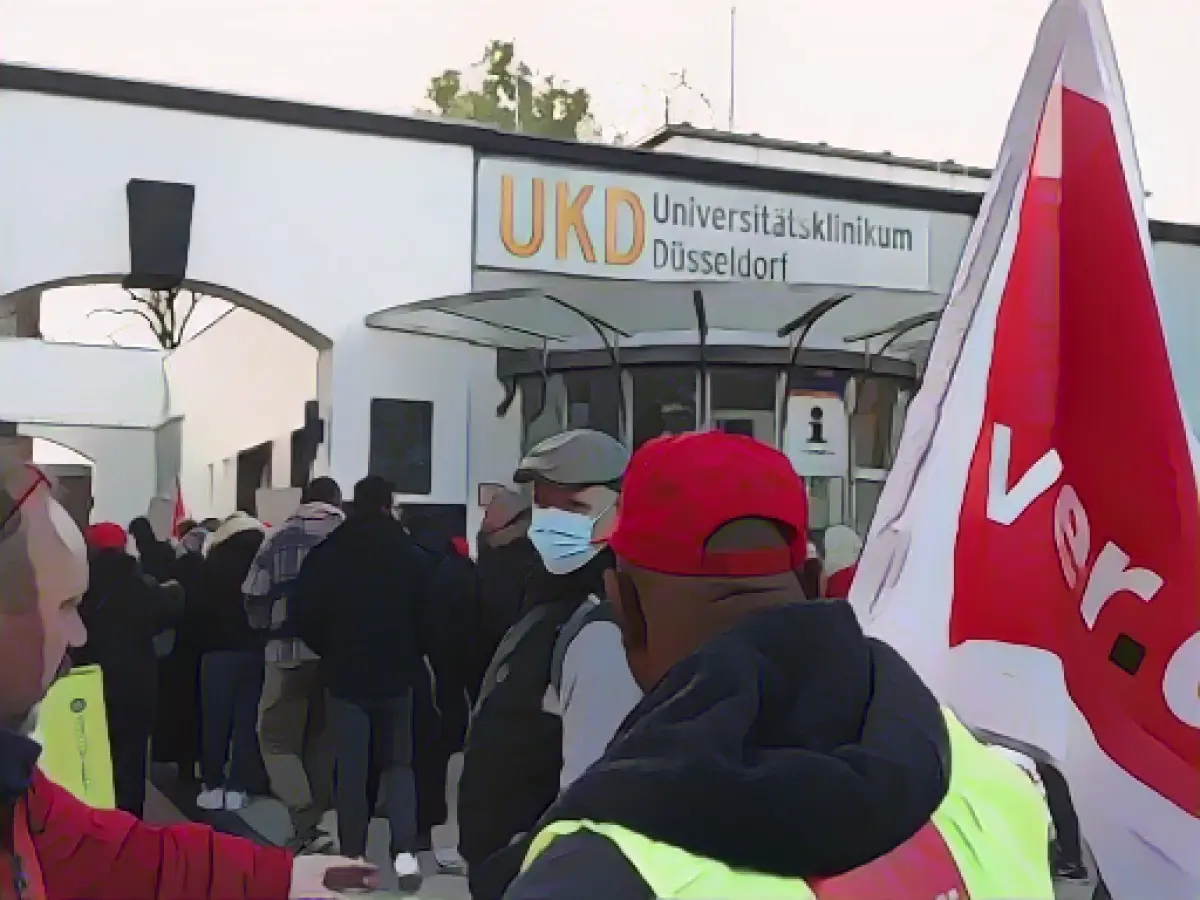Updated Article:
Train Driver's Union and Deutsche Bahn: Second Round of Wage Negotiations
By the clock's tick at 11 a.m. on Thursday, the German Train Drivers' Union (GDL) and Deutsche Bahn will resume their wage talks in Berlin. The inaugural discussions in early November and the first round of warning strikes late last week have barely moved the two parties any closer to an agreement. GDL leader Claus Weselsky hinted at further strikes, stating, "We won't take long before the next warning strike."
The GDL seeks a monthly salary increase of 555 euros, as well as an inflation compensation bonus for a twelve-month period, in addition to a significant reduction in shift worker hours from 38 to 35, with full compensation. In their initial offer, Deutsche Bahn proposed a pay increase of 11% spread over 32 months and did not address the hours reduction claim. Their vice president of human resources, Martin Seiler, considers this demand unattainable, as it could create a personnel shortage that cannot be filled in the context of the prevailing employee scarcity.
Weselsky acknowledges that the reduction in weekly working hours cannot occur immediately and has expressed a willingness to negotiate a phased implementation over an extended period. Nonetheless, most analysts expect an agreement on working hours to become a cornerstone of the negotiations, which will influence the outcome of GDL's wage squabbles with competitor Transdev.
The negotiations are further clouded by GDL's ambitions to expand its influence within Deutsche Bahn. The infrastructure division will, for the first time, be incorporated into GDL's collective agreement, expanding the union's reach beyond its original scope. Deutsche Bahn has yet to accept this demand.
The contentious topic of working hours has been an issue of contention between the union and Deutsche Bahn since 2016. Both sides agreed on a choice model for employees, representing additional vacation days, more income, or shorter weekly working hours, which was first implemented by Deutsche Bahn in 2018. The options were expanded in January 2021, including up to twelve additional vacation days.
If disagreements persist, the ongoing negotiations may lead to railway service disruptions by means of planned strikes. The GDL is also advocating for tariff amendments, urging Deutsche Bahn to include the infrastructure division in their collective agreement. For more detailed insights into the wage negotiation points and potential outcomes between Deutsche Bahn and the Rail and Transport Union (EVG), refer to the enrichment data.
Source: dpa.com
Enrichment Data:
The current wage negotiation points and probable outcomes between Deutsche Bahn and the Rail and Transport Union (EVG) are as follows:
Current Wage Negotiation Points:
- Salary Increase:
- EVG Demand: A 7.6% salary increase for all staff[1][3].
- Deutsche Bahn Offer: A 4% salary increase across the board, accompanied by a 2.6% additional increase for shift workers[1][3].
- Added Benefits:
- EVG Demand: Additional benefits for shift workers, such as extra days off[3].
- Deutsche Bahn Offer: The proposed terms incorporate a phased salary increase for shift workers, totaling around 7.9%, which includes the added pay[3].
- Job Security Guarantees:
- EVG Demand: Job security assurances extending to 2027[1][3].
- Deutsche Bahn's Stance: The company presented a 37-month contract term, which has drawn criticism from union members[1][3].
Potential Outcomes:
- Negotiation Advancements:
- The negotiations are ongoing, with the previous round concluding without an accord. The next rounds are scheduled for February 4 and February 5, 2025[1][3].
- Strike Risks:
- The EVG emphasized that labor action would be employed as a last resort, but the risk of disruptions exists if the peace period expires and no agreement exists[1].
- Political Influences:
- The negotiations are shaped by political uncertainties and the upcoming federal elections. The EVG urges for prompt closure to protect workers from forthcoming transformations, including potential privatization of Deutsche Bahn segments[1].
- Future Implications:
- The consensus reached during these negotiations will have far-reaching ramifications extending beyond immediate salary adjustments, influencing the trajectory of Deutsche Bahn within the broader transportation sector and overall impact of political changes.
In summary, the EVG aims for substantial wage increases and job security guarantees, while Deutsche Bahn proposes a less substantial salary increase and extra benefits. The negotiations are intricate and influenced by numerous political factors, with the potential for strikes if no agreement is achieved.








